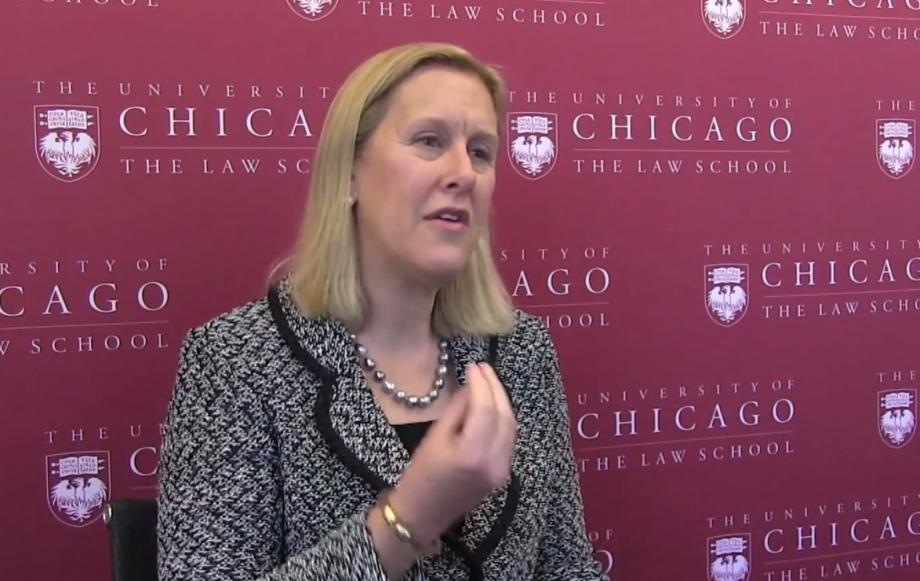My Chicago Law Moment: Working on the Mandel Clinic, Nancy Rotering, '90, Developed a Lifelong Commitment to Providing Access to Justice

My Chicago Law Moment is a series highlighting the Law School ideas, experiences, and approaches that have impacted our students and alumni. Video produced by Will Anderson.
As a Law School student in the late 1980s, Nancy Rotering, ’90, worked on the Mandel Legal Aid Clinic representing a client who had been dismissed from his job illegally. The case was complex, the stakes were high, and the client had nowhere else to turn. In those months, Rotering, who already had an economics degree from Stanford and an MBA from Northwestern, realized what it truly meant to provide access to justice.
“All attorneys have this obligation to provide services to people who need legal services,” said Rotering, a lawyer, mayor, and candidate for US Congress. My experience on the clinic “gave me a true appreciation for day-to-day issues blowing up and people needing someone to be their voice. That carried with me to the rest of my life.”
Access became a central mission, an idea that wouldn’t let go. She devoted her early career to health care law, and after she became the mayor of Highland Park, Illinois, she saw an opportunity to provide larger scale legal aid to underserved members of her own community. Highland Park had both a need, particularly among seniors and Latinos, and thousands of local attorneys who could help meet that need. So in 2012 she launched the city’s Human Services Task Force, which identified three core issues— immigration, domestic abuse, and landlord/tenant disputes—and eventually led to the creation of the Highland Park-Highwood Legal Aid Clinic.
“What I learned from the University of Chicago Law School, and what I learned from my experience as an attorney, was this was absolutely feasible,” said Rotering, who is running to represent the 10th Congressional District in Chicago’s north suburbs. “This was absolutely an opportunity to use resources available to us, to let our community know that we were there as one community, taking care of one another.”
The clinic—which has more than 75 volunteers, including dozens of local attorneys working pro bono—opened this spring.
“We cut the ribbon at 7:30 in the morning and our first client walked in at 8 o’clock,” she said.
The Law School, she said, played a big role in teaching her that she had an “obligation to do right, to speak for justice.”
“I was really focused on access to health care and health care law, but in the back of my mind, I always had this sense—really that I got from the Law School—(that said): here’s your chance to provide service to the public, and here are the skills that you need to be the change.”